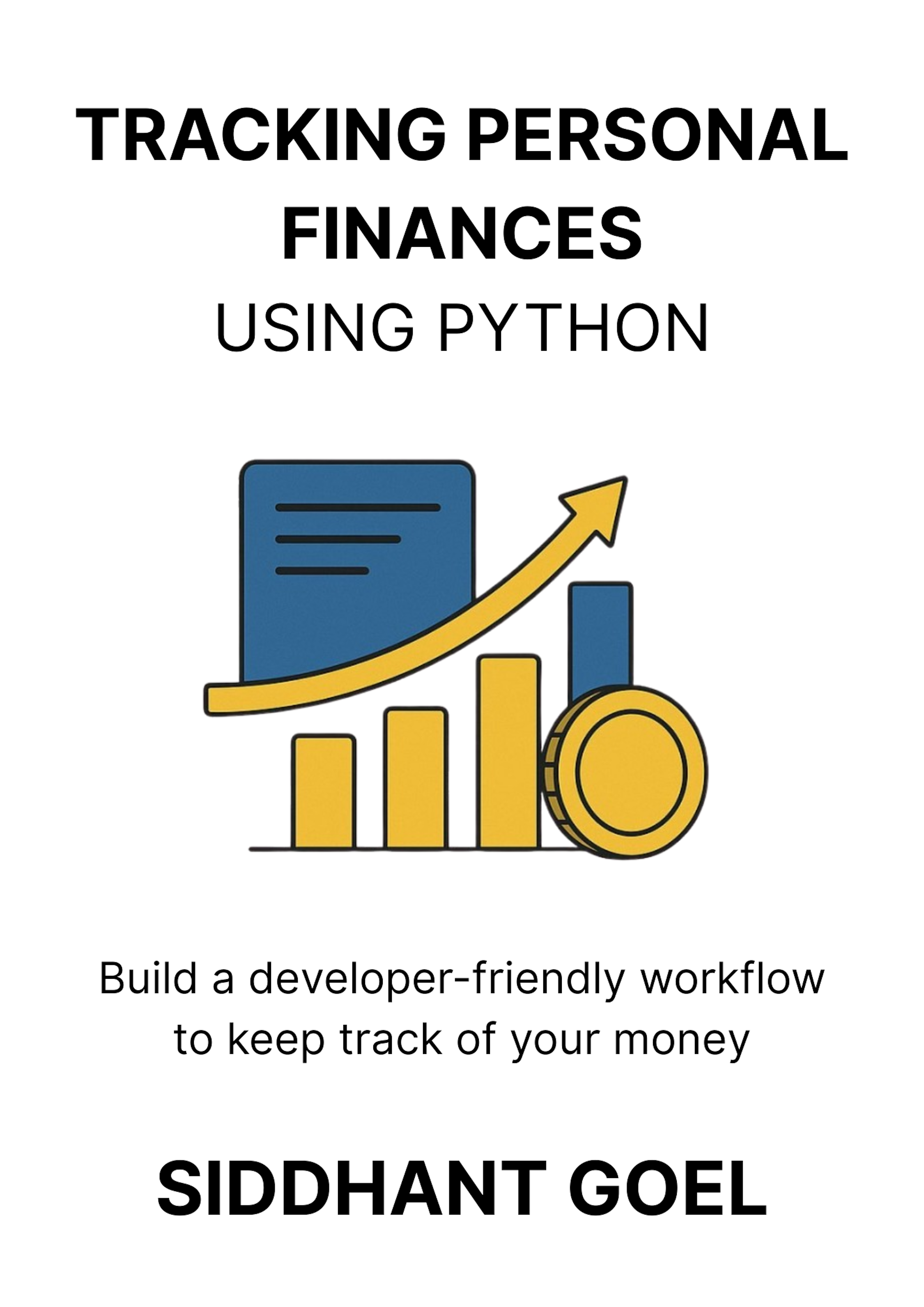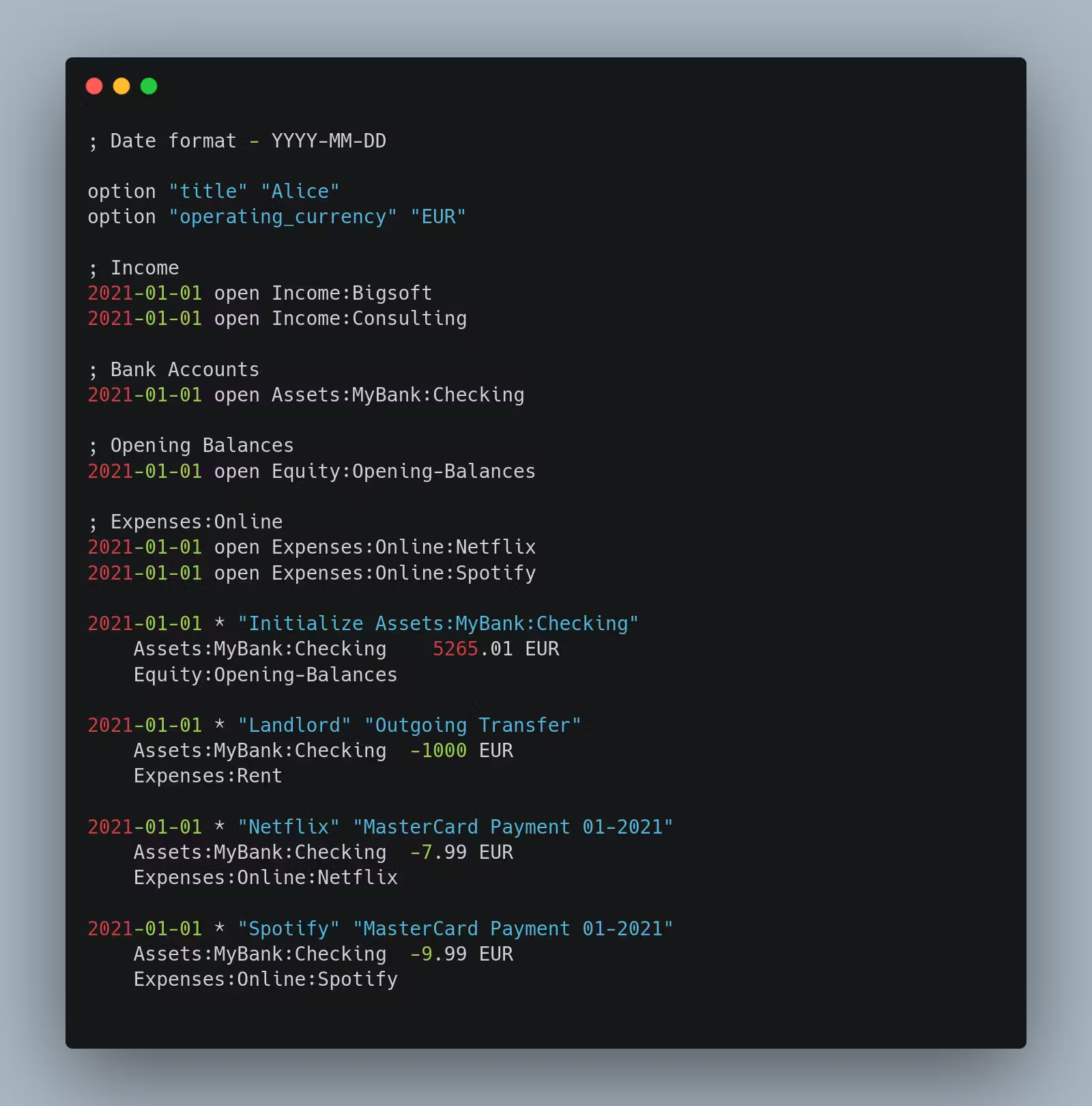
Tracking Personal Finances using Python
Learn double-entry bookkeeping with Python
Tracking Personal Finances using Python is a book that teaches software developers how to track their personal finances entirely using Python and a bunch of plain text files.
The Python ecosystem contains an excellent package called Beancount that provides the foundations for working with money. We'll take Beancount as the starting point to build an application that will act as the single point of contact for your complete financial history, and:
- store every single piece of data from all your bank accounts (strictly on your machine)
- act as the the first point of contact to look up anything related to your finances
- import new financial transactions from your bank accounts on a continuous basis, and
- use customized tools to interact with your financial ledger, analyze your past financial behavior, show your spending patterns, income sources, current liabilities, and more
The final result will be a Git repository on your computer where you can track everything related to your finances.
The Python ecosystem contains an excellent package called Beancount that provides the foundations for working with money. We'll take Beancount as the starting point to build an application that will act as the single point of contact for your complete financial history, and:
- store every single piece of data from all your bank accounts (strictly on your machine)
- act as the the first point of contact to look up anything related to your finances
- import new financial transactions from your bank accounts on a continuous basis, and
- use customized tools to interact with your financial ledger, analyze your past financial behavior, show your spending patterns, income sources, current liabilities, and more
The final result will be a Git repository on your computer where you can track everything related to your finances.

